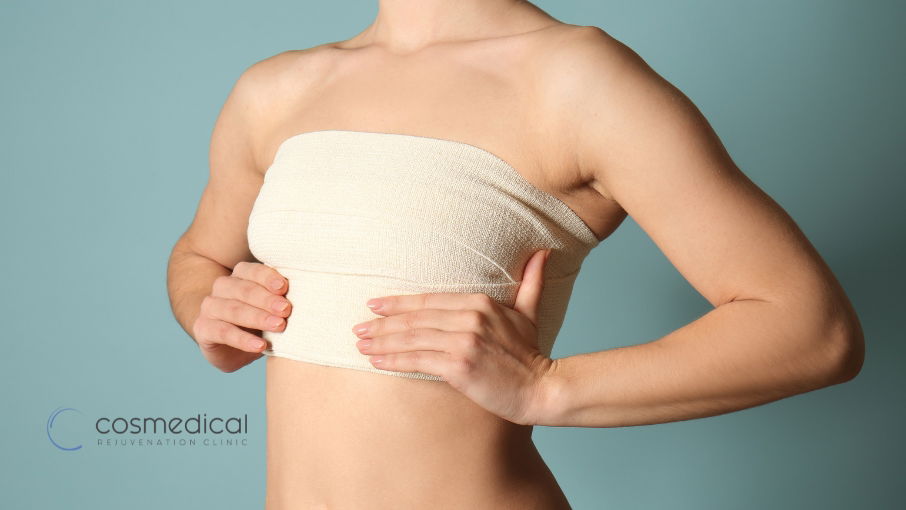
Things To Avoid After Breast Augmentation
Congratulations on taking the step toward the body confidence you deserve! Now that you've had your breast augmentation, the most important part of your journey begins: recovery. While you're likely excited to see your final results, protecting your investment and ensuring optimal healing should be your top priority. The choices you make in the coming weeks will directly impact your results, comfort level, and overall satisfaction with your procedure.
The Critical First 48 Hours
Your body has just undergone a significant change, and those first two days are crucial. Avoid any sudden movements or reaching overhead. This means no stretching to grab that coffee mug from the top shelf or lifting your arms to wash your hair. These movements can stress your incisions and potentially affect implant positioning. Instead, keep everything you need at chest level or below, and don't hesitate to ask for help with daily tasks.
Physical Activities to Put on Hold
While staying active is normally healthy, your usual exercise routine needs to wait. Avoid all strenuous activities for at least 4-6 weeks, or as directed by your surgeon. This includes:
- Running, jogging, or high-impact cardio
- Weight lifting, especially upper body exercises
- Yoga poses that stretch the chest
- Swimming or soaking in hot tubs
- Contact sports or activities with a risk of chest impact
Even light housework like vacuuming or lifting laundry baskets should be delegated to others during your initial recovery. Remember, this temporary pause in activity is protecting your long-term results.
Sleep Position Matters More Than You Think
Avoid sleeping on your stomach or sides for at least the first few weeks. Stomach sleeping puts direct pressure on your healing breasts, while side sleeping can cause implants to shift before they've settled into their pocket. Sleep on your back with your upper body slightly elevated using pillows or a wedge. This position reduces swelling and promotes proper drainage. If you're a natural side sleeper, placing pillows alongside your body can help prevent you from rolling over during the night.
Wardrobe Choices That Could Compromise Recovery
That beautiful underwire bra you bought for after surgery? Keep it in your drawer for now. Underwire bras can irritate incisions and interfere with the settling process. Stick to the surgical bra or sports bra recommended by your surgeon, as they provide the proper support without unnecessary pressure points. Also avoid:
- Tight-fitting tops that require overhead dressing
- Heavy necklaces that rest on your chest
- Clothing with difficult zippers or buttons in the back
Lifestyle Habits to Temporarily Suspend
Smoking and nicotine use must be avoided completely. Nicotine constricts blood vessels, reducing oxygen flow to healing tissues and significantly increasing your risk of complications and poor scarring. This includes cigarettes, vaping, patches, and gum.
Alcohol consumption should also be avoided, especially while taking pain medications. Alcohol can increase swelling, interfere with medications, and dehydrate your body when it needs optimal hydration for healing.
Sun Exposure and Heat Sources
Your incisions are particularly vulnerable during healing. Avoid direct sun exposure on your chest area for at least 6-12 months. UV rays can darken scars permanently, making them more noticeable. When you do venture outside, keep incisions covered or use a high-SPF, zinc-based sunscreen once your surgeon approves it.
Similarly, avoid saunas, steam rooms, and very hot showers. Excessive heat can increase swelling and may affect how your implants settle.
Listen to Your Body, Trust Your Surgeon
While these guidelines provide a general framework, your surgeon's specific instructions should always take precedence. Every patient heals differently, and your surgeon knows the details of your procedure and your individual needs.
Pay attention to warning signs like excessive swelling, unusual pain, fever, or changes in breast appearance. Don't hesitate to contact your surgeon's office with concerns, as it's always better to ask than to worry.
Your Recovery, Your Results
Recovery might feel slow, but remember that each day of proper care brings you closer to enjoying your results for years to come. By avoiding these activities and behaviours, you're giving your body the best chance to heal beautifully and achieve the outcome you envisioned.
Call (647) 493-8177